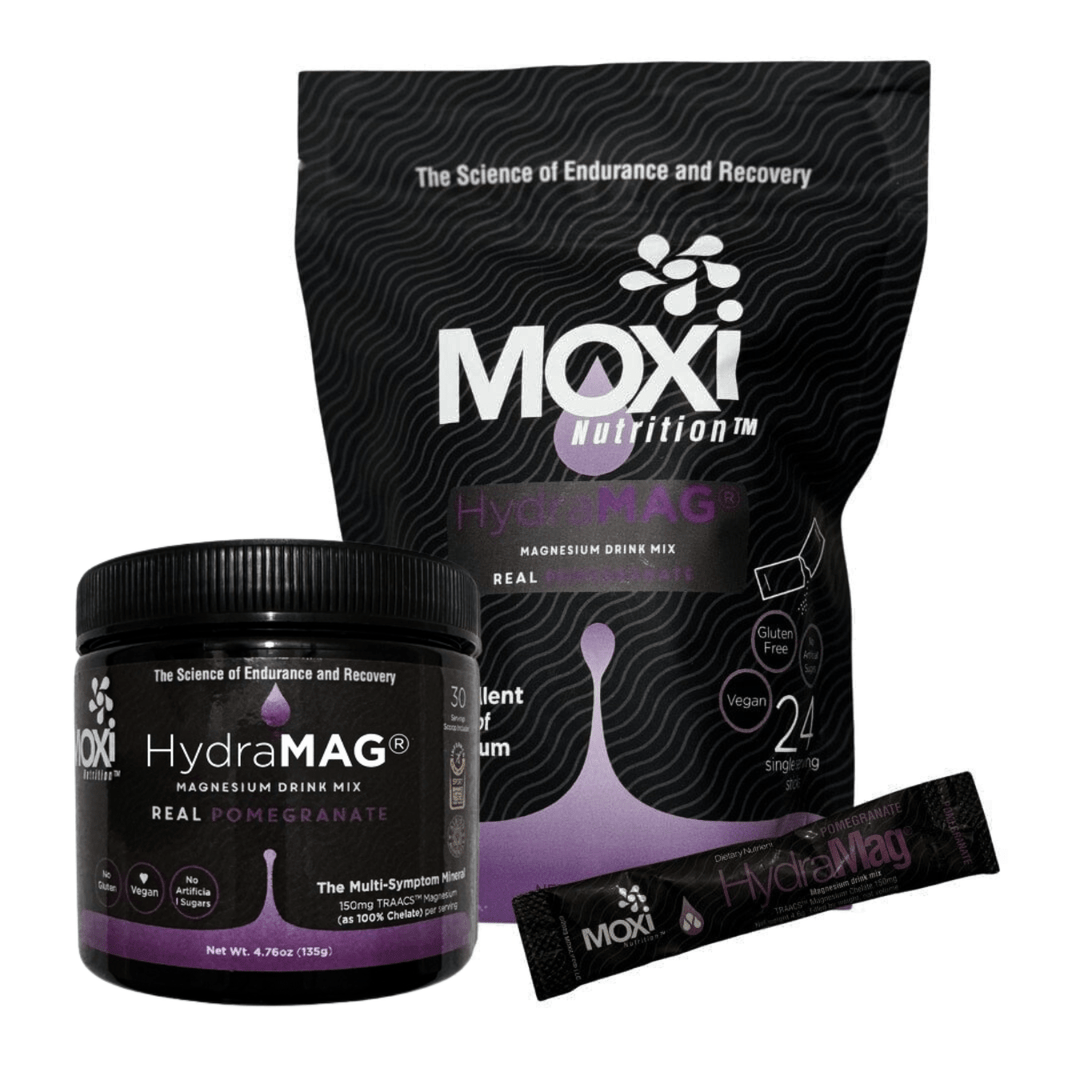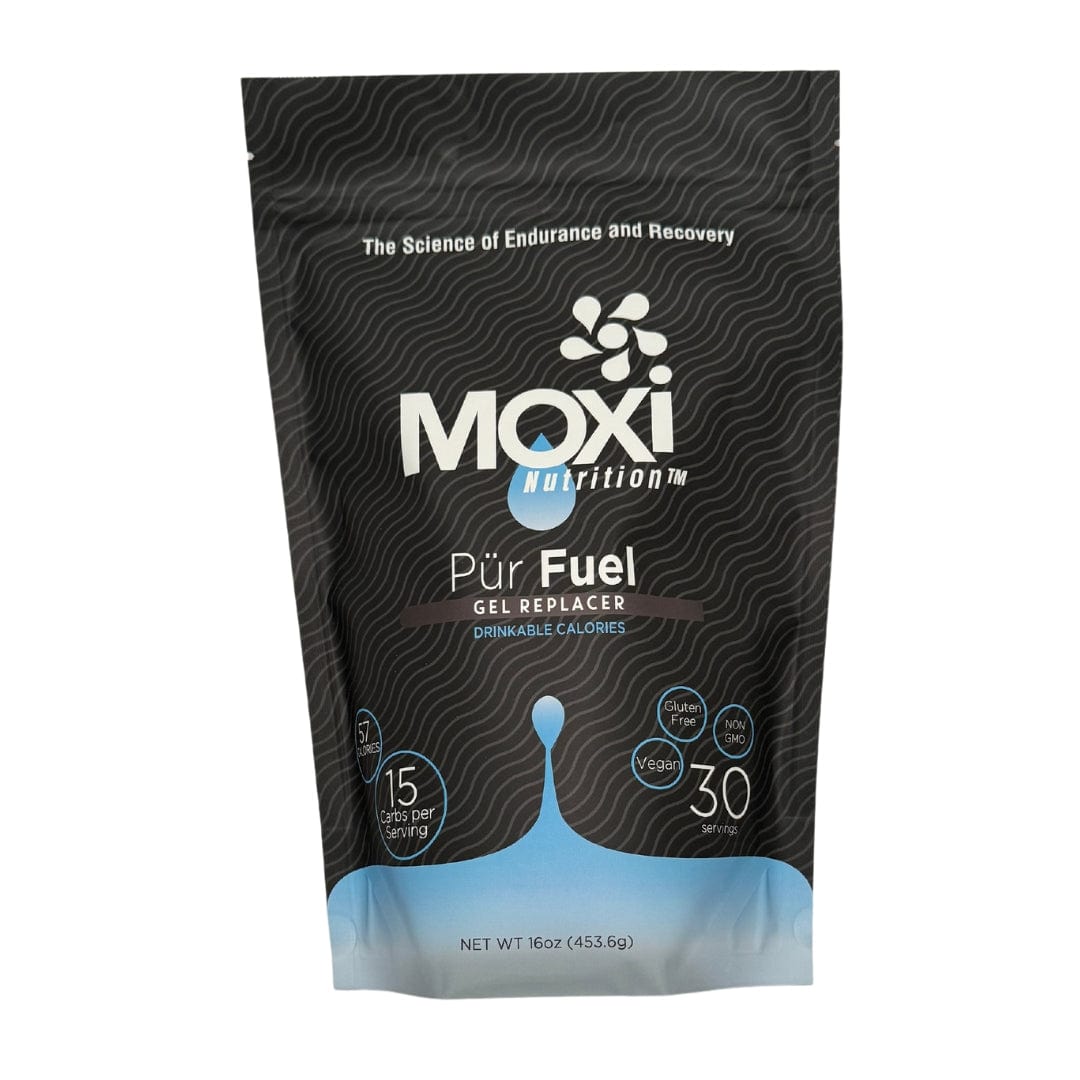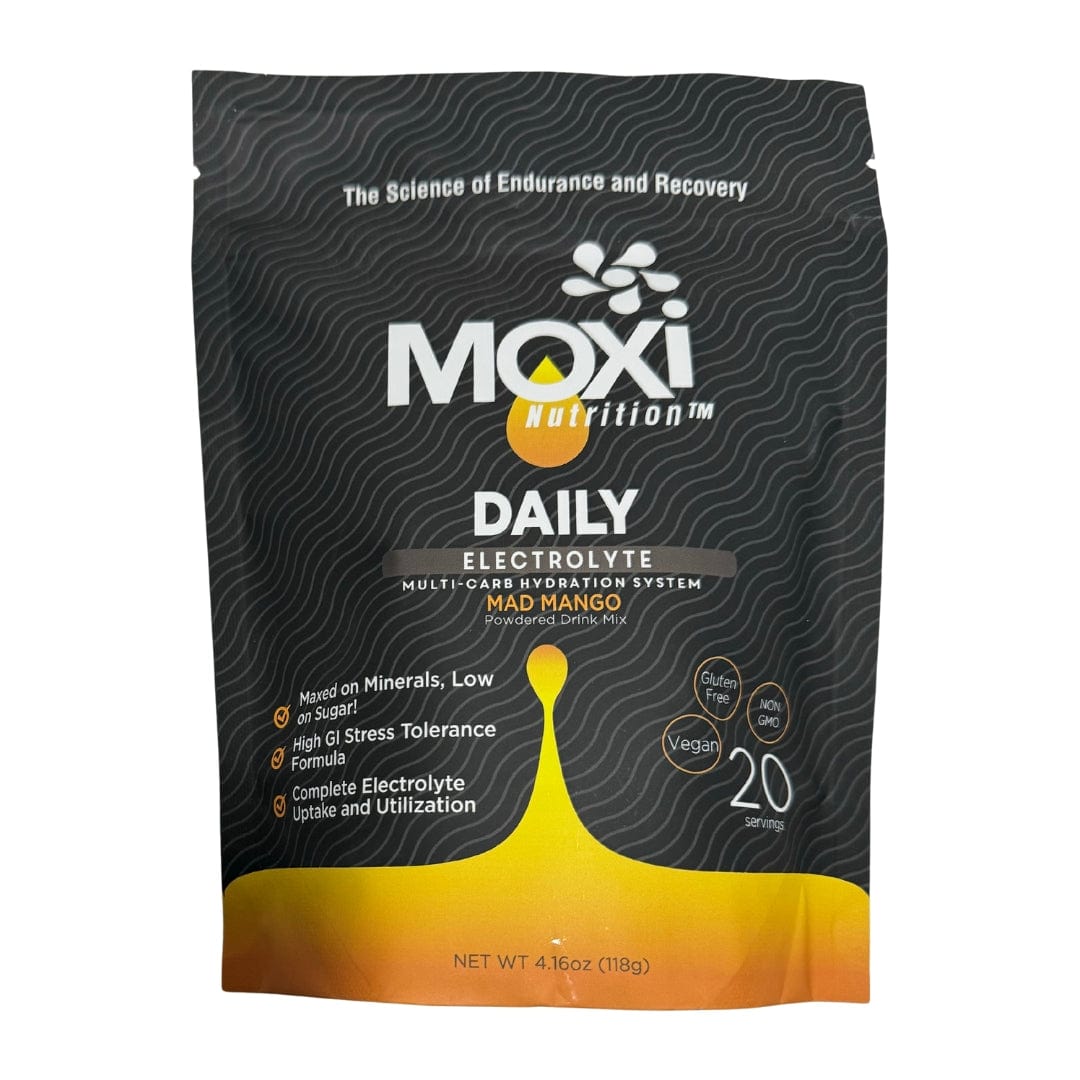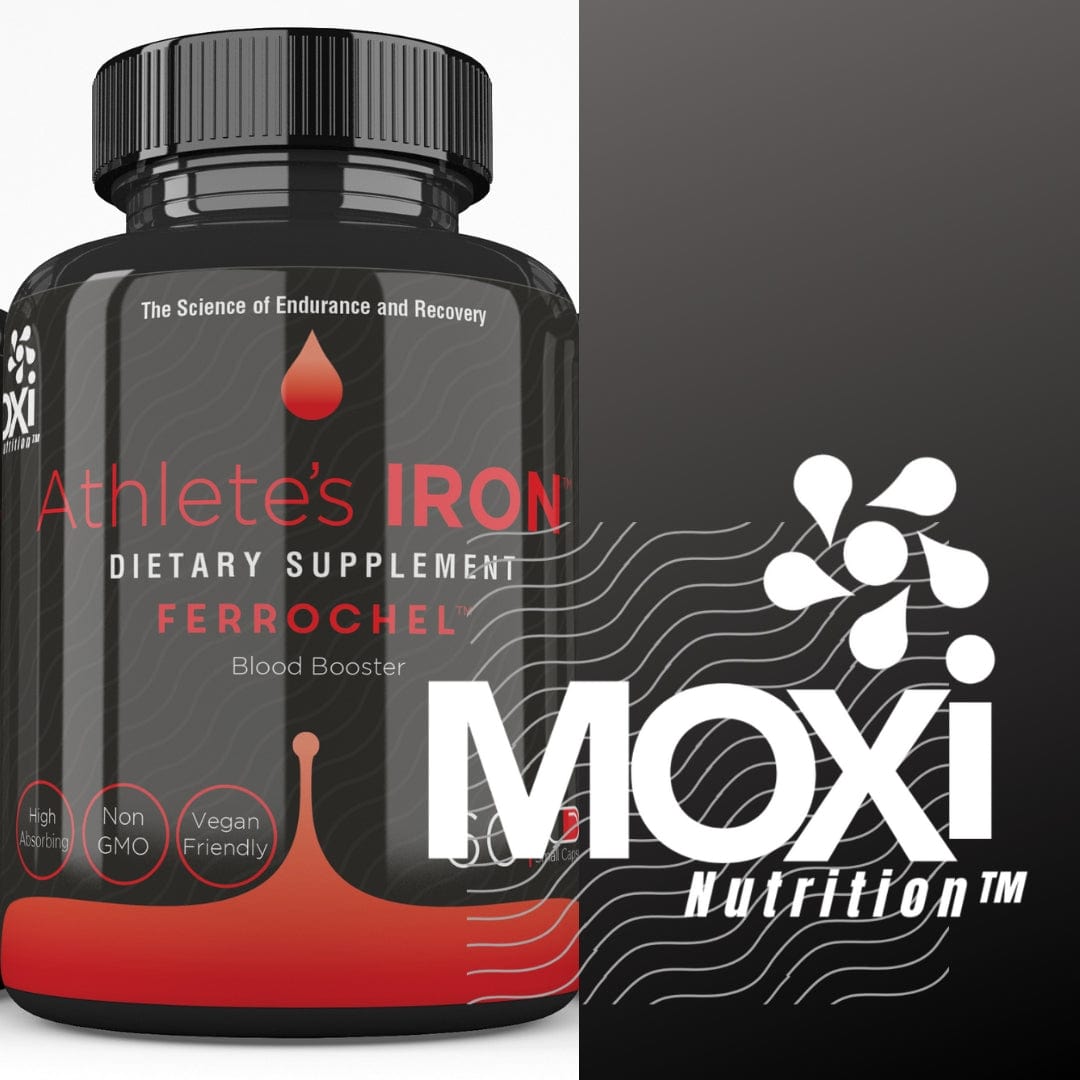The Top Performance Benefits of Magnesium for Pickleball Players
 A magnesium drink can potentially benefit the performance of a pickleball player in a few ways. Magnesium is an essential mineral that plays a crucial role in various bodily functions, including muscle contraction and relaxation, energy production, and electrolyte balance. Here's how it can help:
A magnesium drink can potentially benefit the performance of a pickleball player in a few ways. Magnesium is an essential mineral that plays a crucial role in various bodily functions, including muscle contraction and relaxation, energy production, and electrolyte balance. Here's how it can help:
1. Muscle function: Magnesium aids in muscle function and can help prevent muscle cramps and spasms during physical activity, such as playing pickleball. It supports proper muscle contraction and relaxation, allowing for better control and coordination on the court.
2. Energy production: Magnesium is involved in ATP (adenosine triphosphate) production, which is the main energy currency of the body. By ensuring optimal energy production, magnesium can contribute to improved endurance and sustained performance during intense pickleball matches.
3. Electrolyte balance: Sweating during exercise leads to the loss of electrolytes, including magnesium. Maintaining proper electrolyte balance is important for hydration and overall performance. Consuming a magnesium drink before or after playing pickleball can help replenish these lost electrolytes.
How does magnesium aid in muscle relaxation & contraction?
No one wants to cramp in the middle of your game and there is a simple way to prevent cramps. Up you Magnesium intake with a high absorbing Magnesium.

Magnesium plays a vital role in muscle contraction and relaxation by influencing the function of calcium channels and ATP (adenosine triphosphate) production. Here's a brief explanation:
1. Calcium channel regulation: Magnesium helps regulate calcium movement within muscle cells. During muscle contraction, calcium ions are released, allowing the muscle fibers to contract. After contraction, the calcium ions need to be pumped back out of the cells to allow for relaxation. Magnesium assists in this process by inhibiting the influx of calcium into muscle cells. By maintaining the balance between calcium influx and efflux, magnesium helps ensure proper muscle function and prevents excessive muscle contractions that can lead to cramps or spasms.
2. ATP production: ATP is the primary energy source for muscle contraction. Magnesium is involved in numerous reactions that contribute to the production and utilization of It helps convert ADP (adenosine diphosphate) back into, providing energy for the ongoing muscle activity. Adequate magnesium levels support efficient ATP, which is crucial for sustained muscle performance during physical activities like pickleball.
By the regulation of calcium movement and facilitating ATP production, magnesium helps enhance muscle contraction relaxation, which is important for the overall performance, endurance, and recovery of pickleball players.
How does magnesium help prevent excessive muscle spasms?
Magnesium helps prevent excessive muscle contractions and spasms through its role in regulating calcium movements within muscle cells. Here's how it works:
1. Calcium channel regulation: Magnesium helps regulate the activity of calcium channels in muscle cells. These channels control the flow of calcium ions into and out of the cells. When a muscle contracts, calcium ions flood into the muscle cells, triggering the contraction. However, for proper muscle relaxation and to prevent prolonged contractions or spasms, it's important for the calcium ions to be pumped back out of the cells.
2. Inhibition of calcium influx: Magnesium acts as a natural calcium channel blocker. It helps prevent excessive calcium influx into muscle cells by competing with calcium for binding sites on the calcium channels. By inhibiting the entry of excess calcium, magnesium ensures that muscle contractions are appropriately regulated and do not become overly intense or prolonged.
3. Muscle fiber relaxation: After the contraction phase, the calcium ions need to be removed from the muscle cells for relaxation to occur. Magnesium assists in this process by promoting the transport of calcium out of the cells and back into storage sites, such as the sarcoplasmic reticulum. This helps restore the balance of calcium within the muscle cells, allowing for proper relaxation and preventing spasms or sustained contractions.
By regulating calcium movements and preventing excessive calcium influx, magnesium helps maintain the delicate balance between muscle contraction and relaxation. This is crucial for preventing muscle cramps, spasms, and excessive contractions, thereby supporting optimal muscle function during physical activities like pickleball or any endurance athletic activity.
How does magnesium specifically regulate Calcium channels?
Since Magnesium and Calcium are like the pilot and copilot of muscle and energy functions the Optimized and balanced levels of these two minerals is critical to performance and health
Magnesium regulates calcium channels in muscle cells through several mechanisms:
1. Competitive inhibition: Magnesium competes with calcium for binding to the calcium channels on the cell membrane. By occupying these binding sites, magnesium reduces the entry of calcium ions into the muscle cells. This competitive inhibition helps prevent excessive calcium influx and maintains proper control over muscle contractions.
2. Modulation of channel activity: Magnesium can directly influence the activity of calcium channels, either by enhancing their closure or reducing their opening. It acts as a negative modulator, meaning it decreases the activity of the channels and thereby limits the flow of calcium ions. This modulation helps regulate the intensity and duration of muscle contractions, preventing them from becoming excessive or sustained.
3. Voltage-dependent regulation: Calcium channels in muscle cells are voltage-dependent, meaning their opening and closing is influenced by changes in electrical potential across the cell membrane. Magnesium has been shown to affect the voltage-dependent properties of these channels, slowing down their activation and reducing the likelihood of calcium influx. This voltage-dependent regulation further contributes to the control of muscle contraction and relaxation.
It's important to note that the exact mechanisms through which magnesium regulates calcium channels may vary depending on the specific type of calcium channel and the muscle tissue involved. However, the overall effect of magnesium is to limit the entry of calcium ions into muscle cells, preventing excessive contractions and spasms.
While magnesium plays a crucial role in regulating muscle function, it's vital to maintain appropriate levels of magnesium in the body through a balanced diet or supplements, especially for individuals who engage in physical activities like pickleball that require muscle coordination and flexibility.
What specific effects does magnesium have on the voltage-dependent properties of calcium channels in muscle cells, and how does this contribute to muscle control?
Magnesium has specific effects on the voltage-dependent properties of calcium channels in muscle cells. Here's how magnesium's action on these properties contributes to muscle control:
1. Slowing down channel activation: Magnesium slows down the activation of voltage-gated calcium channels. These channels open in response to changes in electrical potential across the cell membrane. By slowing down their activation, magnesium reduces the rate at which calcium channels open in response to depolarization. This effect helps regulate the timing and intensity of calcium influx into the muscle cells. Slower activation of calcium channels can prevent excessive influx of calcium ions, which is important for maintaining appropriate muscle control.
2. Reducing channel opening probability: Magnesium decreases the likelihood of voltage-gated calcium channels opening. It reduces the probability that the channels will transition from a closed state to an open state in response to depolarization. By reducing channel opening probability, magnesium limits the entry of calcium ions into the muscle cells. This reduction in calcium influx helps prevent sustained or prolonged muscle contractions, which can lead to muscle spasms or cramps.
3. Enhancing channel closing: After opening, calcium channels eventually close to stop the flow of calcium ions. Magnesium can enhance the closing of calcium channels by increasing the rate at which they transition from an open state to a closed state.
This action promotes the termination of calcium entry into the muscle cells, preventing excessive calcium accumulation and maintaining proper muscle control.
By slowing down channel activation, reducing opening probability, and enhancing channel closing, magnesium helps regulate the flow of calcium ions through voltage-gated calcium channels in muscle cells. This regulation ensures that muscle contractions are appropriately timed, controlled, and prevent excessive or prolonged activity.
Magnesium's effects on the voltage-dependent properties of calcium channels contribute to the overall muscle control and help prevent muscle spasms or cramps.
To effectively perform at pickleball and to prevent muscle spasms a balance of both Magnesium and calcium is critical to achieve a cramp free environment. This not only keeps you on your game, it is also vital to cardiovascular and over all health.








